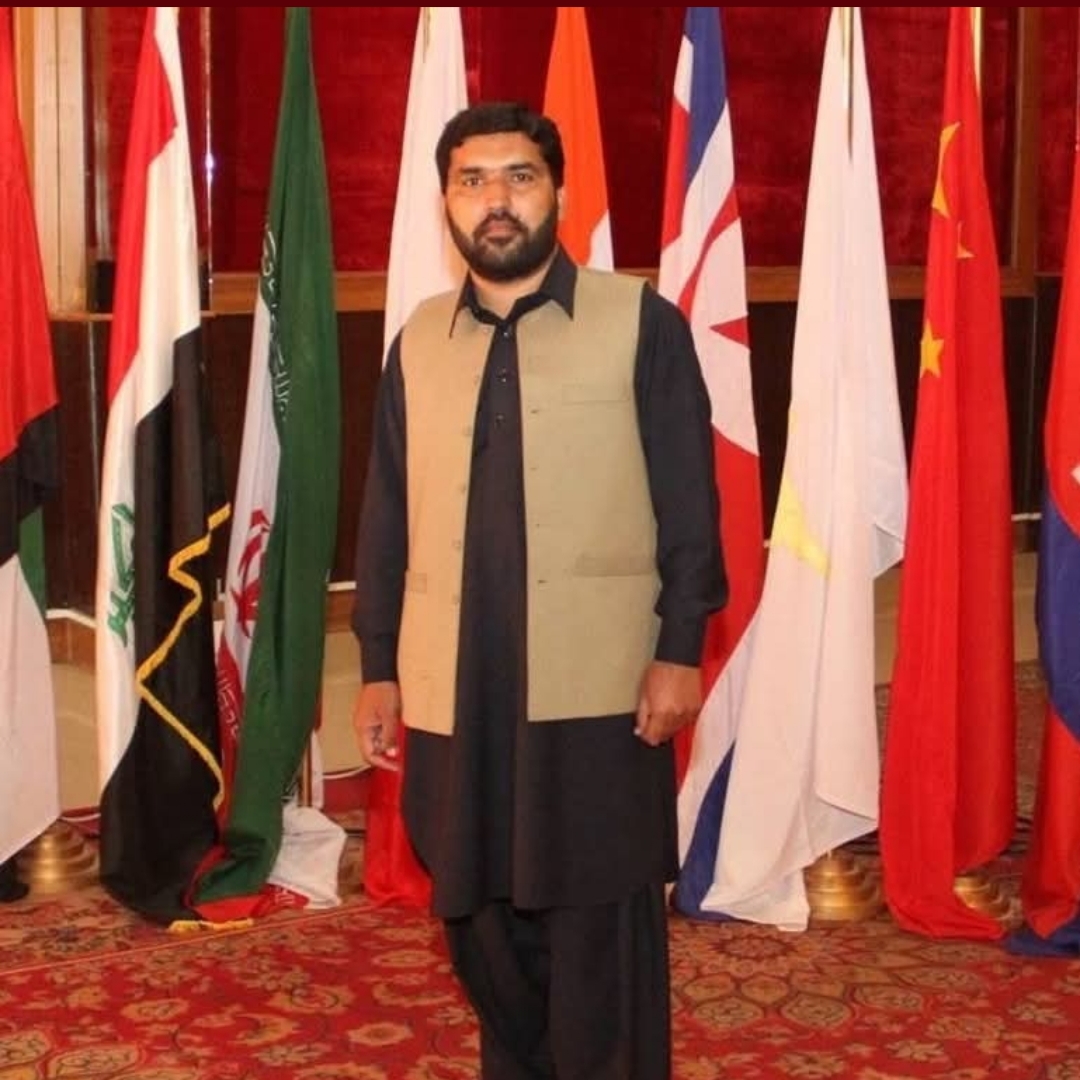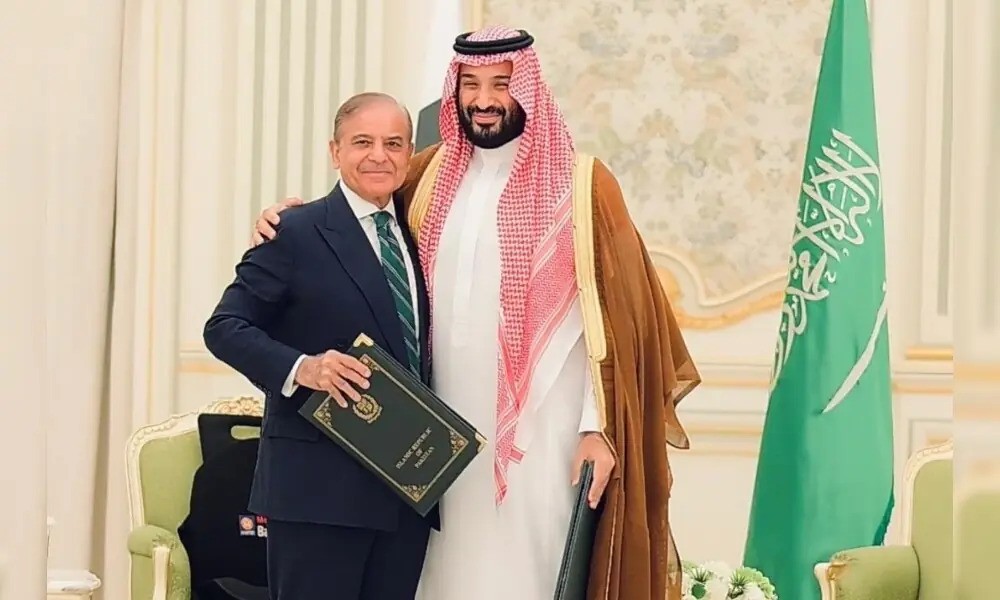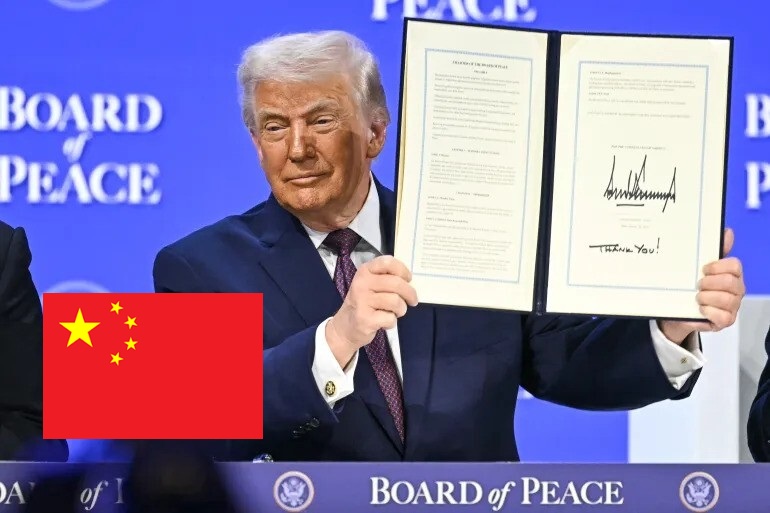By Maham Tahir
ISLAMABAD : Pakistan and Saudi Arabia formalised a Strategic Mutual Defense Agreement, under which “any aggression against either country shall be considered an aggression against both.”
The pact was signed in Riyadh by Prime Minister Shehbaz Sharif and Crown Prince Mohammed bin Salman. Pakistan’s Army Chief, Field Marshal Asim Munir, was present. A Saudi official told Reuters the agreement is “a culmination of years of discussions.
This is not a response to specific countries or specific events but an institutionalisation of longstanding and deep cooperation between our two countries.”
The historical ties between Riyadh and Islamabad are long and deep. Since 1967, Pakistan has trained over 8,200 Saudi armed forces personnel, establishing an enduring basis for bilateral military cooperation.
The agreement builds on decades of joint exercises, arms cooperation, and informal defence coordination, but this is the first time the link has been pledged in a binding mutual defence format.
One of the most sensitive aspects is nuclear ambiguity. When asked whether Pakistan’s nuclear deterrent is part of the guarantee, the Saudi official said the pact is “a comprehensive defensive agreement that encompasses all military means.”
However, the public text does not explicitly extend a nuclear umbrella. There is no clear wording on whether Pakistan will deploy its nuclear assets in Saudi defence, under what circumstances, or with what control or oversight.
This leaves space for interpretation and potential diplomatic risk.
Regional balancing is also a clear message. While Islamabad gains prestige and renewed strategic relevance, Riyadh seems to be signalling that its defence posture is not anchored to dependence on any single ally.
The same senior Saudi voice noted, “Our relationship with India is more robust than it has ever been. We will continue to grow this relationship and seek to contribute to regional peace whichever way we can.”
With rising unease among Gulf states over U.S. reliability amid recent regional events (such as the Israeli airstrike in Doha) this pact reinforces Saudi Arabia’s desire for multiple security partners.
Important details remain missing. So far, there is no published information on budget allocations, formal command and control structures, or exact legal trigger points for “aggression.”
It is not yet clear how mutual defence will be operationalised: whether Saudi Arabia will host Pakistani forces, how deployments would be coordinated, or what logistics and force readiness are planned. Without such specificity, the risk is that the agreement could remain a diplomatic statement rather than an operational treaty.
Looking ahead, what matters is the translation of words into action. Observers will be watching whether Saudi Arabia and Pakistan establish joint planning cells, hold joint military exercises, define legal mechanisms and rules of engagement, and whether there is clarity on nuclear aspects.
If these components advance, the pact could mark a shift in regional security architecture. If not, it may function largely as a deterrent by posture, without altering strategic realities on the ground.

Naeem Akhtar plays a key role in shaping editorial content and maintaining the highest standards of accuracy and clarity. His dedication ensures that PNP’s coverage remains timely, reliable, and impactful for its readers worldwide.



